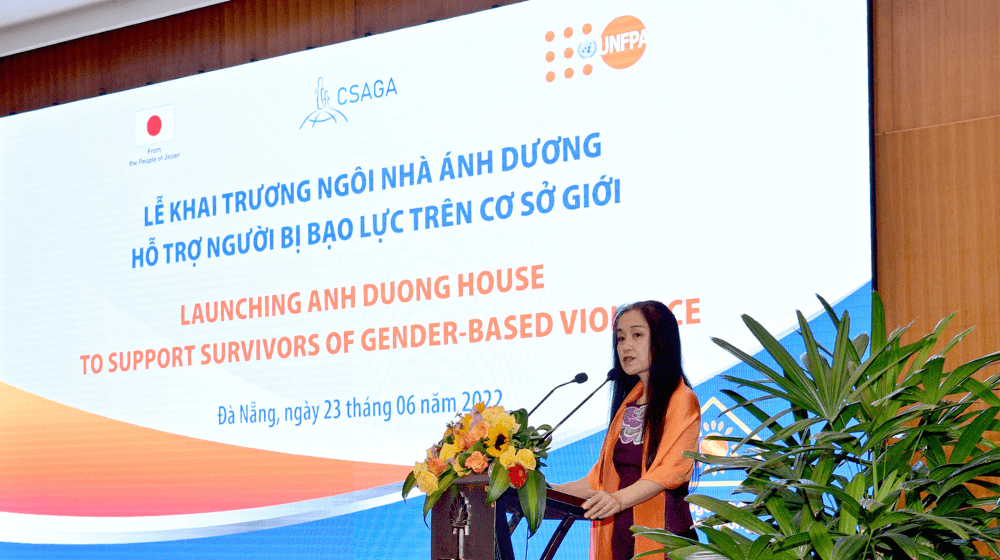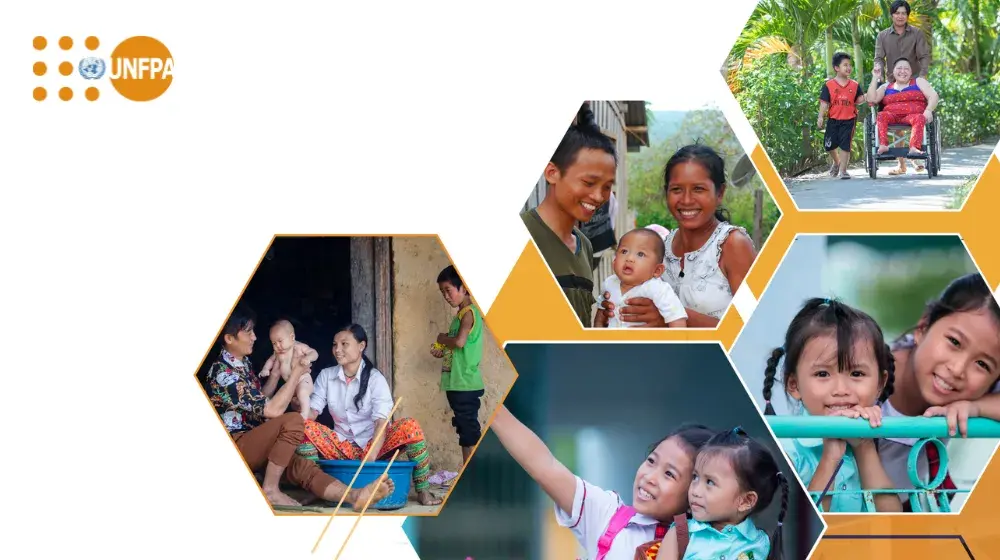Ms. Nguyen Kieu Nga, Acting Director of CSAGA;
Representatives from the Government agencies and Da Nang DOLISA;
UNFPA staff and media colleagues;
I am delighted to be here today to officially launch a One Stop Service Centre (OSSC) – Anh Duong House, as we call it in Viet Nam - in Da Nang City. This is the fourth OSSC in Viet Nam, facilitated by UNFPA, to support survivors of gender-based and domestic violence.
This Anh Duong House has been established under the Japan funded project “Mitigating COVID 19 impacts on Vulnerable Populations – Ensuring National Progress to Achieve SDGs in Viet Nam.” I would like to express our heartfelt gratitude to the Japanese Government to partner with UNFPA in our efforts to end violence against women and girls.
I would also like to extend my special appreciation to CSAGA for its tireless efforts to set up this facility, which was not by any means easy. But CSAGA has impressed us all for its strong commitment and drive to deliver a promise with a passion to help vulnerable women and girls in Viet Nam.
Dear participants,
Gender-based violence is a manifestation of gender inequality, which is deeply rooted in Viet Nam. According to the 2019 national study on violence against women, nearly 2 in 3 women aged 15 – 64 have experienced at least one form of physical, sexual, psychological, and/or economic violence in their lifetime. And it is very much hidden in Vietnamese society, as more than 90% of women who experienced violence do not seek any help from public services, and half never told anyone about it. Gender-based violence is costing Viet Nam 1.81% of GDP in 2018, which is significant.
A pre-existing prevalence of violence against women and girls has been exacerbated in the context of Covid-19. Recent reports have shown that restrictions in movement, social isolation and similar containment measures, coupled with existing or increased social and economic pressures and stress on families, have led to an increase in violence at home, particularly against women and girls in the world, and Viet Nam has not been an exception. To date, existing UNFPA-supported OSSCs in Quang Ninh, which was launched in 2020 and in Thanh Hoa, which was launched earlier this year, have so far accommodated more than 450 cases, and their hotlines, which are available 24/7 free of charge, are receiving more than 1,000 calls for help every month. Both centres are operating beyond their originally designed capacity, which indicates the urgent need for more OSSCs in the country.
Our one stop service center, Anh Duong House, provides integrated services to victims of violence under one roof, including health care, counselling, social welfare services, emergency sheltering, police protection, legal and justice services, and referral services. UNFPA has provided technical and financial support, in accordance with international practice and standards. The idea is to provide such essential services to survivors of violence in one place, so that survivors themselves do not have to go around and look for services. In this sense, the Anh Duong House model is very innovative, and a completely different establishment from a shelter.
Dear participants,
Ending GBV and harmful practices against women and girls is one of the three transformative agenda of UNFPA’s corporate Strategic Plan. In Viet Nam, UNFPA has been accompanying the Government of Viet Nam in the path to ending violence against women and girls. UNFPA wants to ensure that all women and girls in Viet Nam, including those most vulnerable, have the right to live a life free of violence and with dignity. We are not leaving women and girls behind in the efforts of achieving SDGs by 2030.
Thank you very much for your attention and participation.



